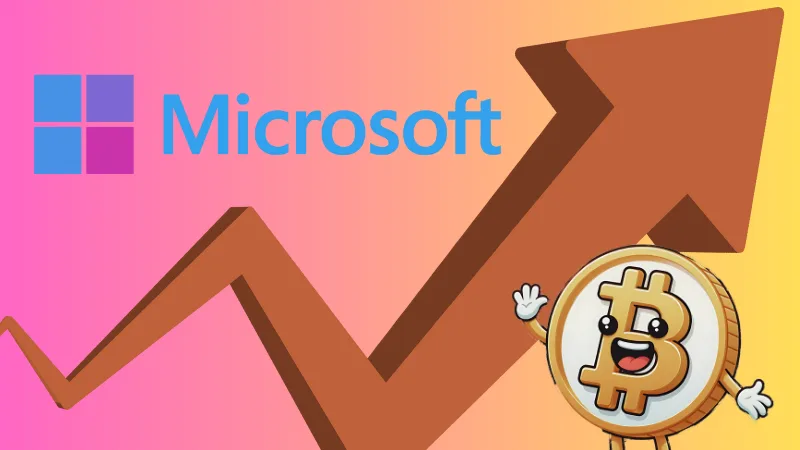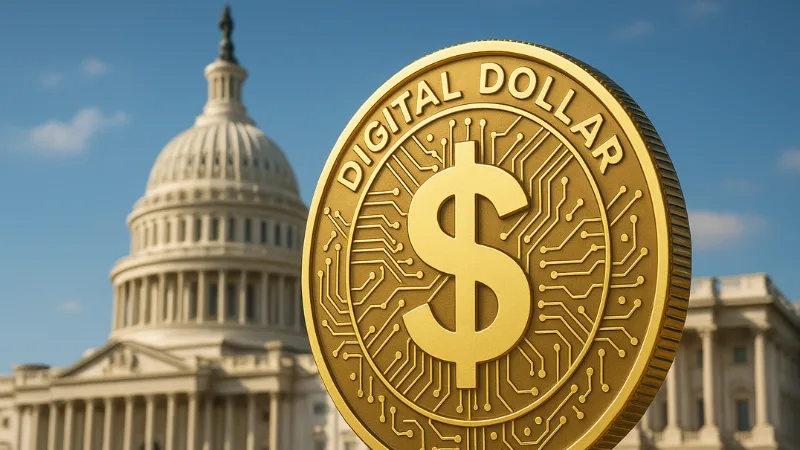Microsoft shareholders are preparing to vote on a groundbreaking proposal this Tuesday, December 10, 2024. The proposal, introduced by the National Center for Public Policy Research (NCPPR), urges Microsoft to explore the feasibility of adding Bitcoin to its corporate balance sheet. This decision has the potential to make waves not only within the tech giant’s strategy but also in the broader cryptocurrency market.
The Proposal: A Hedge Against Inflation
The NCPPR, a conservative think tank, argues that Bitcoin represents an ideal hedge against inflation and could significantly enhance shareholder value. Advocates of the proposal highlight Bitcoin’s decentralized nature, limited supply, and increasing adoption as key factors that could strengthen Microsoft’s financial position in an uncertain economic landscape.
Microsoft’s Board Pushes Back
While the idea of Bitcoin integration has garnered attention, Microsoft’s board of directors has recommended voting against the proposal. According to the board, the company’s Global Treasury and Investment Services team already evaluates a wide range of investable assets, including Bitcoin. The board emphasizes that Microsoft’s treasury strategy prioritizes stability and liquidity, key considerations for operational funding and financial health. They have also raised concerns about Bitcoin’s price volatility, which could undermine the stability required for corporate treasury operations.
Michael Saylor’s Advocacy for Bitcoin
Michael Saylor, the Chairman of MicroStrategy, has emerged as a vocal proponent of the proposal. Saylor, whose company has invested heavily in Bitcoin, recently presented to Microsoft’s board, extolling the potential benefits of adopting the cryptocurrency. He argues that Bitcoin can serve as a long-term store of value and a strategic reserve asset in the face of inflation and fiat currency devaluation.
Market Implications of Microsoft’s Decision
If Microsoft’s shareholders approve the proposal, it could mark a significant turning point for corporate adoption of Bitcoin. Analysts suggest that a positive outcome could inspire other tech giants and Fortune 500 companies to consider Bitcoin as a viable treasury asset. On the other hand, a rejection of the proposal might temper enthusiasm for cryptocurrency adoption in the corporate world.
Risks and Legal Considerations
The NCPPR has hinted at potential legal ramifications if Microsoft declines to invest in Bitcoin and the cryptocurrency’s value subsequently surges. They argue that failing to act in the best financial interests of shareholders could expose the company to lawsuits. This adds an additional layer of complexity to the decision-making process, as the company must weigh potential gains against the risks of volatility and legal scrutiny.
Broader Cryptocurrency Adoption
This vote comes at a time when Bitcoin and other cryptocurrencies are gaining traction in institutional investment portfolios. The rise of Bitcoin ETFs and the increasing mainstream acceptance of blockchain technology underscore a growing shift in the financial landscape. A Microsoft endorsement could accelerate this trend, positioning Bitcoin as a credible asset class for corporations worldwide.
Conclusion
As the vote looms, the decision carries significant implications for Microsoft’s future strategy and the broader financial ecosystem. If shareholders opt to explore Bitcoin investment, Microsoft could set a precedent for other corporations, boosting Bitcoin’s legitimacy as a corporate treasury asset. Conversely, a rejection would highlight the ongoing challenges of integrating volatile assets like Bitcoin into traditional financial frameworks.
Regardless of the outcome, this pivotal vote reflects the growing tension between innovation and caution in the evolving world of corporate finance. For Microsoft and the cryptocurrency market, December 10, 2024, could prove to be a defining moment.





